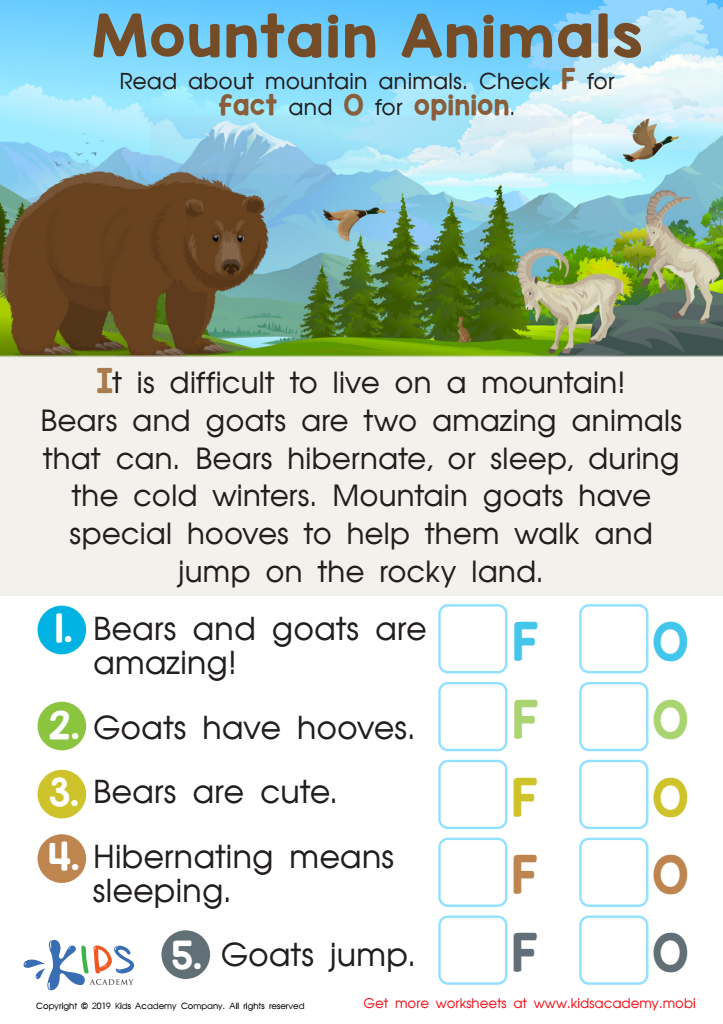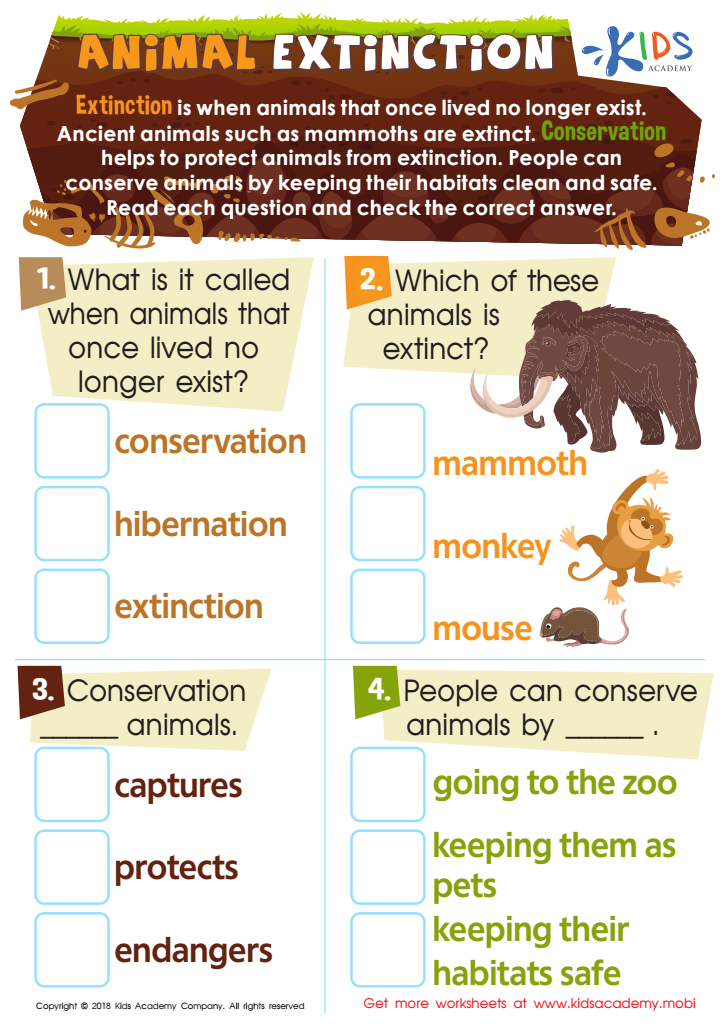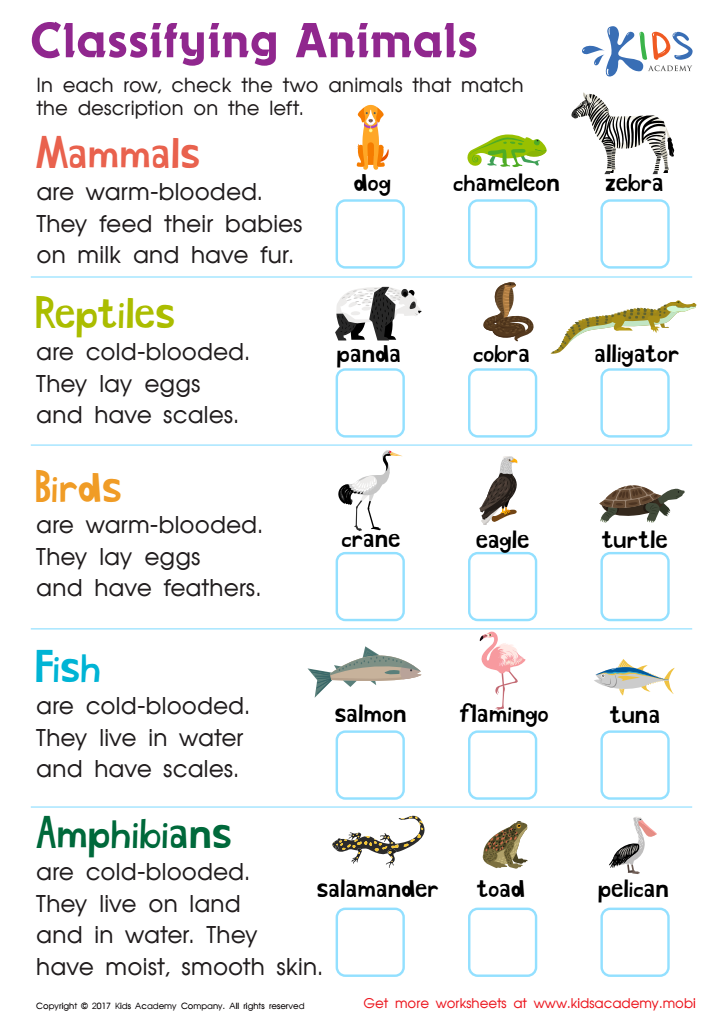Critical Thinking Normal Animals Worksheets for Ages 7-8
3 filtered results
-
From - To
Enhance your child's cognitive development with our "Critical Thinking Normal Animals Worksheets" designed for ages 7-8. These science-focused printables engage young learners in analyzing and differentiating between various animals and their characteristics. Offering a fun, interactive way to challenge their minds, our worksheets encourage curiosity, logical reasoning, and problem-solving skills. Through activities like matching, sorting, and exploring animal habitats, your child will expand their knowledge while developing essential critical thinking abilities. Perfect for classroom or at-home learning, these worksheets are an excellent resource for fostering a deeper understanding of the animal kingdom. Download now and inspire a love for learning!


Mountain Animals Worksheet


Animal Extinction Worksheet


Classifying Animals Worksheet
It's essential for parents and teachers to prioritize critical thinking development in children aged 7-8, and using normal animals as study subjects can be a highly effective method. Critical thinking involves analyzing facts, evaluating evidence, and making reasoned decisions, skills vital for lifelong learning and problem-solving. At this formative stage in a child's development, engaging with relatable and familiar subjects like animals can stimulate curiosity and interest.
Children naturally love animals, making them an excellent bridge to introduce complex ideas. When kids learn about the habits, habitats, and characteristics of animals, they are encouraged to observe, question, and reason. For example, teachers can ask students why a certain animal behaves the way it does or how adaptations help animals survive. Such questions challenge students to think deeply, draw connections, and consider multiple perspectives.
Additionally, discussing non-fictional animals cultivates observational skills and promotes scientific inquiry, laying the groundwork for future academic success in subjects like science and biology. By fostering an environment where critical thinking is applied to well-loved subjects, parents and teachers can help develop cognitive skills that extend beyond the classroom, empowering young learners to confidently navigate and interpret the world around them.

 Assign to My Students
Assign to My Students




















